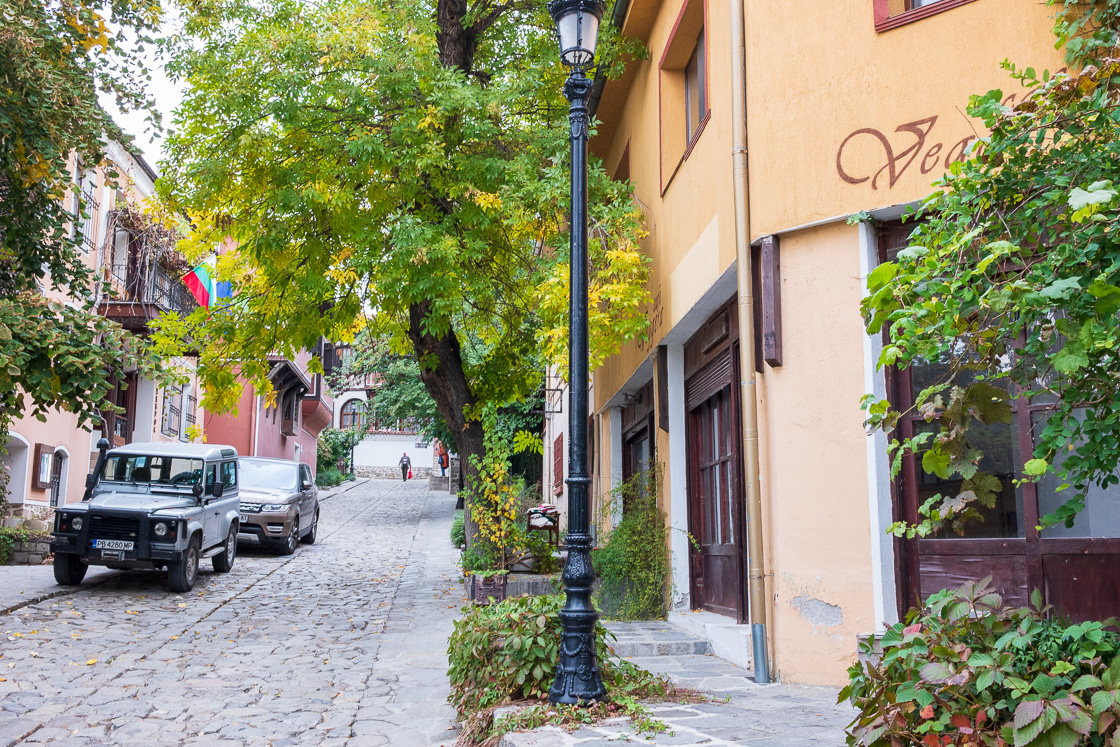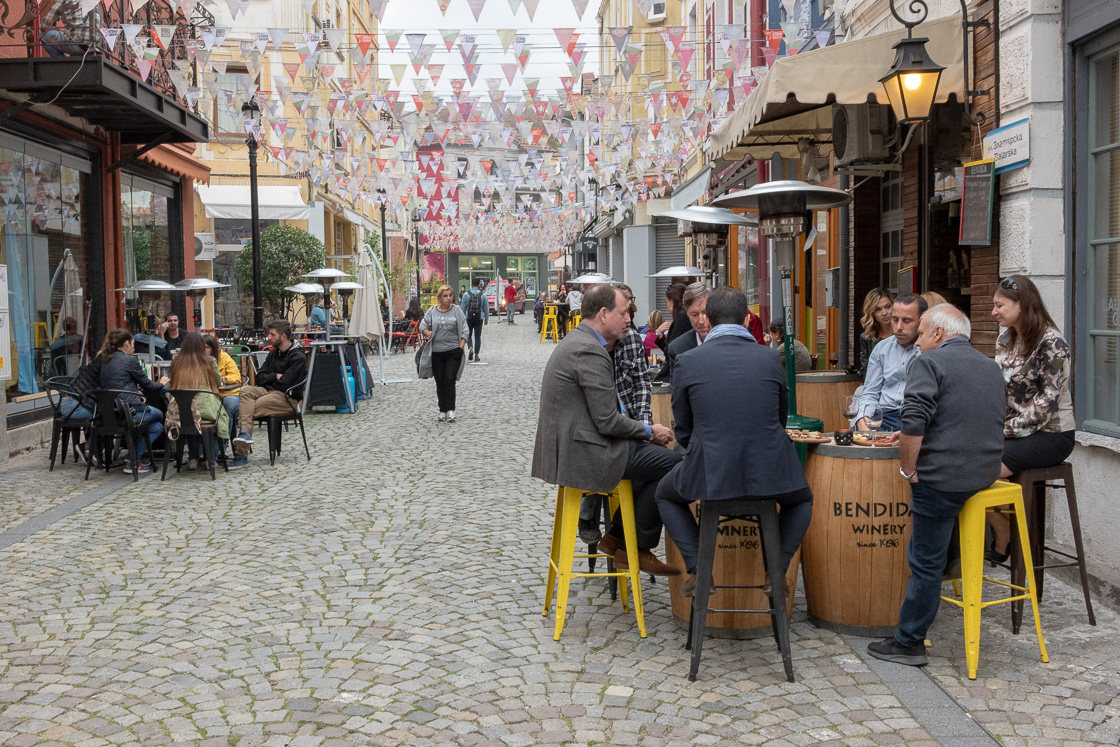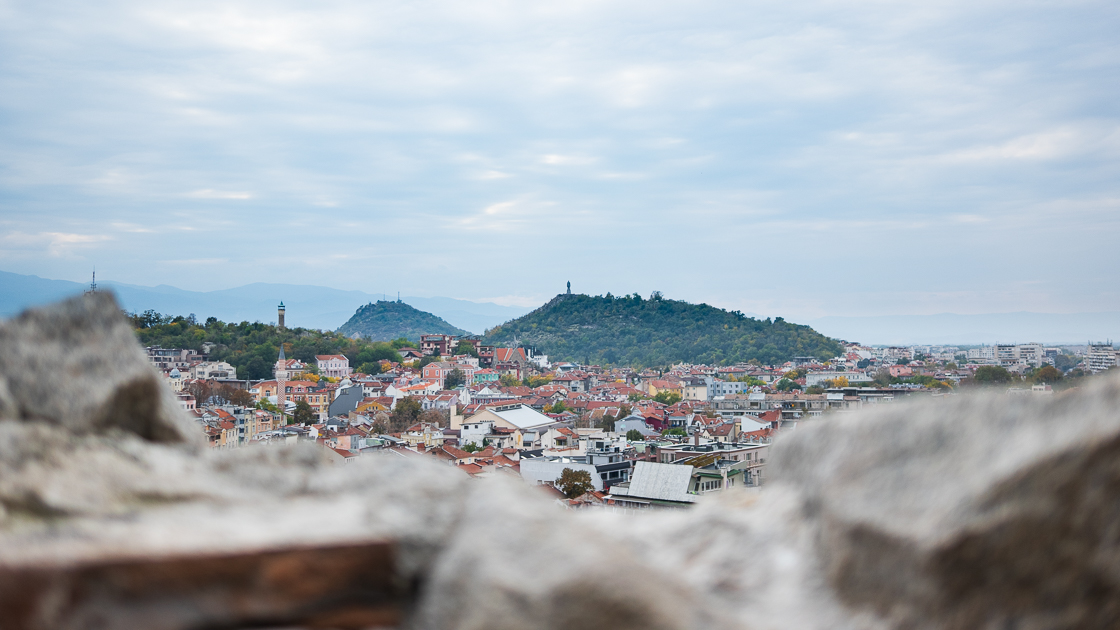November 7, 2018
THE OLD TOWN
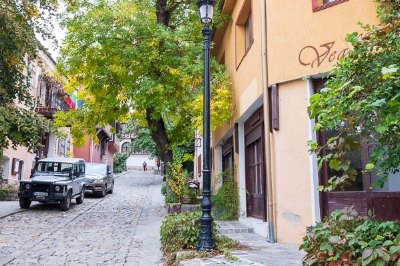
I’m making my way up the pretty little streets of Plovdiv’s old town in Bulgaria. I say up, for there’s a reason Plovdiv is known by Bulgarians as ’The City of the 7 Hills.’ In actual fact this term is passé since Markovo Tepe was demolished at the start of the 20th century. No matter that the material was used to pave the streets of Plovdiv; its loss is still, understandably, keenly felt by local partisans.
While admiring the handsome houses painted in chalky, muted colours that line the route, a middle-aged Bulgarian greets me. He asks me where I’ve been in Bulgaria and what my plans are. He speaks in simple, direct English.
“Sofia is not so good, only government buildings. Plovdiv is beautiful, an ancient town.”
He offers to play tour guide for a small fee and we proceed at a fairly rapid pace through the highlights of the old town: The ancient Roman theatre, churches that date back to the 4th century, the Regional Ethnographic Museum. In the church of St. Constantine and St. Helena, I’m stunned by the delicacy of the work. Hand-carved wood and delightful gold filigree rivals anything in Rome or Florence.
NEBET TEPE
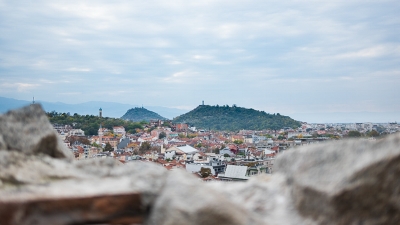
We reach the pinnacle of Nebet Tepe, the Hill of the Guards. From here vestiges of the ancient city are still visible: Thracian walls, Hellenistic towers, a Roman staircase, a reservoir dating from the Middle Ages. We pick our way across strewn boulders to stand on the crumbling walls where lie some of the best views of the modern city and its 350,000 inhabitants. I marvel at the 8 Millenia of history culminated right here before me.
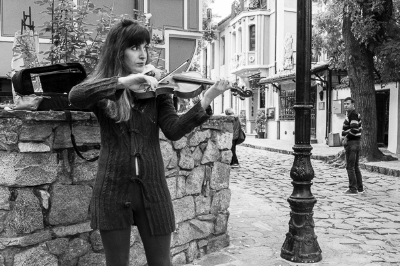
We part company and I descend the winding streets back towards The Maritsa. I’m arrested by a beautifully haunting melody. Following my ears, like the musical equivalent of the Bisto Kid, I soon happen upon its producer. The young lady is packing away her violin but she agrees to play another and I’m treated to a rendition of Rachmaninov’s Trio Elégiaque. She’s a graduate of the prestigious Music Academy.
“The main season is over but there are still a few tourists even at this time of year.”
“And then what?”
“Maybe return to study. You cannot make enough money from a career in music.”
KUKERI
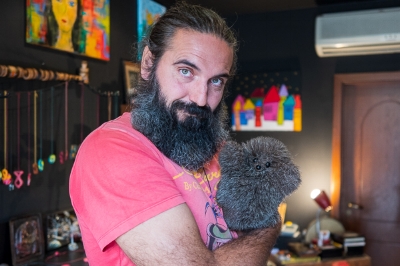
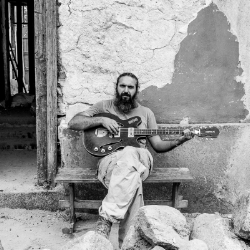
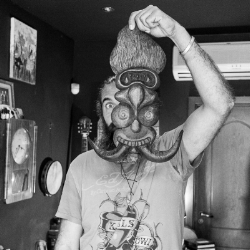
It’s a tragedy, sadly not unique to Bulgaria. As an alternative she could, like the impressively bearded man of Tsanko Lavrenov, set up shop. He’s strumming along to psychedelic 60s rock blasting from a small set of speakers when I walk past. It’s enough to entice me into his cavelike shop where he flourishes, magician-like, items seemingly out of thin air: a wartime leather camera case, some old prints, a hand-crafted pendant. He’s a real performer and when he proceeds to demonstrate a traditional Kukeri mask I don’t know whether to laugh or run for the (admittedly not too distant) hills in fear.
“Look them up on the internet,“ he says. “They’re used in folk rituals at the end of the year.”
I ask him about his business.
“Oh you know, could be better, could be worse,” he says. “I sell some things abroad on the internet.”
KAPANA
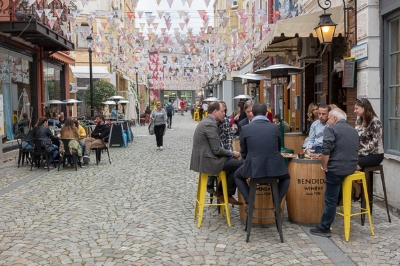
He’s in a decent location, right next to the Plovdiv Regional Ethnographic Museum. But I suspect he’d be better off in Kapana, the now gentrified arts and craft district. Here a canopy of pretty bunting cocoons the trendy bars and artisan studios. Well-heeled locals lounge around sipping coffee in the sunshine. I catch the occasional English accent: some businessmen discussing a deal, some lads on a weekend away, backpackers. While I’m eating lunch, a woman from the hairdressers comes out of the shop to pet Archie. She has a Labrador just like him at home.
“Can I give him a treat?”
She’s just returned to Plovdiv from a couple of years studying in Denmark. The winters dragged long, dark and cold. Work paid and the standard of living was reasonable but she missed her family and of course her dog. The call of her hometown proved too loud to ignore.
“Plus I can actually afford to buy a house here in Bulgaria. Not in Plovdiv, but close by.”
GLAVNATA
It’s a shame that she cannot afford to live in the city that employs her; European and Japanese money is fuelling renovations and restorations which is pushing up prices. Still, the city seems to be resisting the kind of bland homogeneity from which other European cities are suffering. Glavnata is the main high street, refreshingly free of global chains. Instead shops selling local goods like beauty products made from the nearby Rose Valley prevail. Archie spies a female Springer Spaniel and lurches to say hello. Her owner is a medical Doctor who loves Plovdiv and wants, like her family before her, to make it her permanent home. But Doctor’s wages are not enough and she complains about Bulgarian politics and corruption: the country will never change. Her boyfriend is working in the UK, presumably earning good money. I think maybe this is the necessary compromise but her phone goes off before I get the chance to ask. It’s her boyfriend and we wave at each other through the alchemy of 21st century communication: The Bulgarian in Britain greeting the Britton in Bulgaria.
EUROPEAN CAPITAL OF CULTURE
The rise and fall of empires, the erection of monuments, the destruction of hills. What ensures a city remains a going concern throughout the turmoil of history? What fuels the passion and devotion of its citizens? Why are people coming home to Plovdiv and yet fleeing Budapest?
The city is like poetry: it compresses all life, all races and breeds, into a small island and adds music and the accompaniment of internal engines.
EB White
Music. Literally, yes. But also a sweet musicality that flutters gently through the pretty streets and across the rooftops of the handsome houses.
Internal engines. Not the big hulking steel industrial types of Ostrava that scream sheer power and brute force but an altogether more gentle apparatus capable of rendering delicate filigree, hand-crafted masks and the intricate melody of a Rachmaninov composition.
You’re going to hear a lot more about Plovdiv in the next couple of years. In 2019 it will act as host of the European Capital of Culture. Bravo. It has much to offer.


